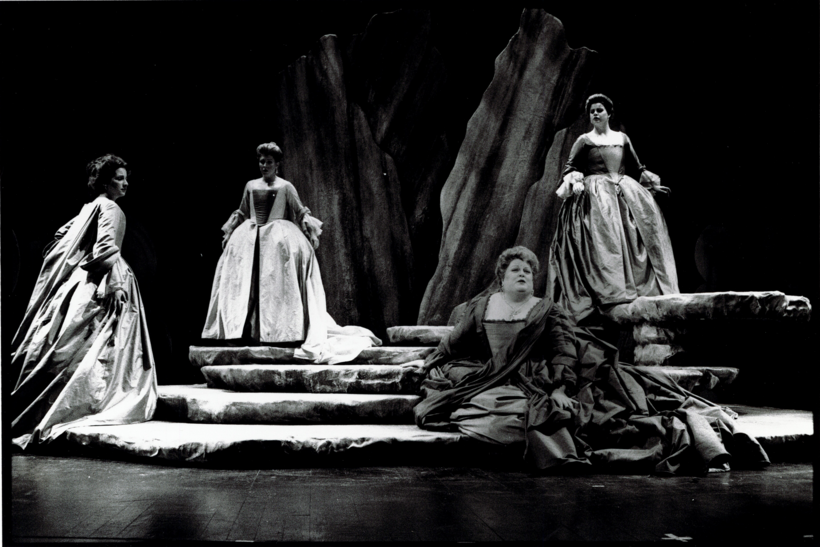The scandale over the little black dress that got her fired from London’s Royal Opera, Covent Garden. Gastric-bypass surgery. That startlingly frank autobiography Call Me Debbie: True Confessions of a Down-to-Earth Diva. The media ate it all up, etching the American soprano Deborah Voigt into the consciousness of her compatriots to a degree perhaps unmatched by any other classical musician of her generation. But first, there was her voice, a bona fide force of nature, as audiences at the Boston Lyric Opera discovered exactly 30 years ago when she starred in Richard Strauss’s Ariadne auf Naxos.
“It is wise to counsel caution,” the critic John Rockwell advised in The New York Times, “but foolish to stifle enthusiasm.” Caveat in place, he then hailed Voigt as “one of the most important American singers to come along in years,” the successor of the phenomenal Eileen Farrell (whose Metropolitan Opera debut in 1956 was greeted with 22 curtain calls). “If Miss Voigt does not soon become an important Wagnerian soprano,” Rockwell concluded, “she will have taken a wrong career turn.”
Who knew we could travel back in time to witness that historic Ariadne for ourselves? Now we can, thanks to a never-before-released in-house video the company has just remastered. It’s still not high-def, but once eye and ear adjust (give them five minutes), Voigt sweeps all before her with the sheer rapture of her singing. Even at peak intensity, where big voices can slash, her sound gleams and blooms.
Who knew we could travel back in time to witness that historic Ariadne for ourselves?
As an actress, she’s at home in her skin, never reaching for effect in her tricky dual role—a haughty prima donna flouncing through a backstage prologue, then the abandoned princess in an extended poetic scena that is longer on introspection than outward action. In the diva’s part, Voigt’s comic touch is unforced, feather-light. And then, in a trice, she transitions to dignity in perfect harmony with pathos, lending high-flown poetry a natural radiance and grace. Ecco un’artista!
Voigt owns the stage, yet she’s not alone. As Ariadne’s flirtatious foil Zerbinetta, Erie Mills skips joyously through sparkling cascades of treacherous coloratura. The young composer who dominates the prologue—a naïve idealist said to have been modeled on Mozart—springs to life in Kristen Jepson’s fiery, vibrantly vocalized performance. The tenor David Rampy, it’s true, has a rough ride as the young god Bacchus, a notoriously ungrateful assignment. But in the large supporting cast, virtually everyone finds a moment to shine. Joseph Rescigno conducts with a canny sense of the score’s mercurial contours.
The orchestral sound isn’t what you’d choose—all too often, instrumental surges overwhelm the microphones. Yet this doesn’t drown out the singers, and paradoxically, the opacity sometimes sweeps us even deeper into Dionysian ecstasy. There’s nothing self-consciously ingenious about the production; the director Bruce Donnell is content to mount the piece as its creators conceived it, hitting all the nails on the head.
An incidental delight, even for snobs who turn up their noses at opera in translation (guilty!), is the nimble English of the prologue and Zerbinetta’s comedy sequences within the opera proper. The mythological scenes for Ariadne are sung in the original eloquent German.
Ariadne auf Naxos is available for streaming on the Boston Lyric Opera Web site
Matthew Gurewitsch writes about opera and classical music for AIR MAIL. He lives in Hawaii

